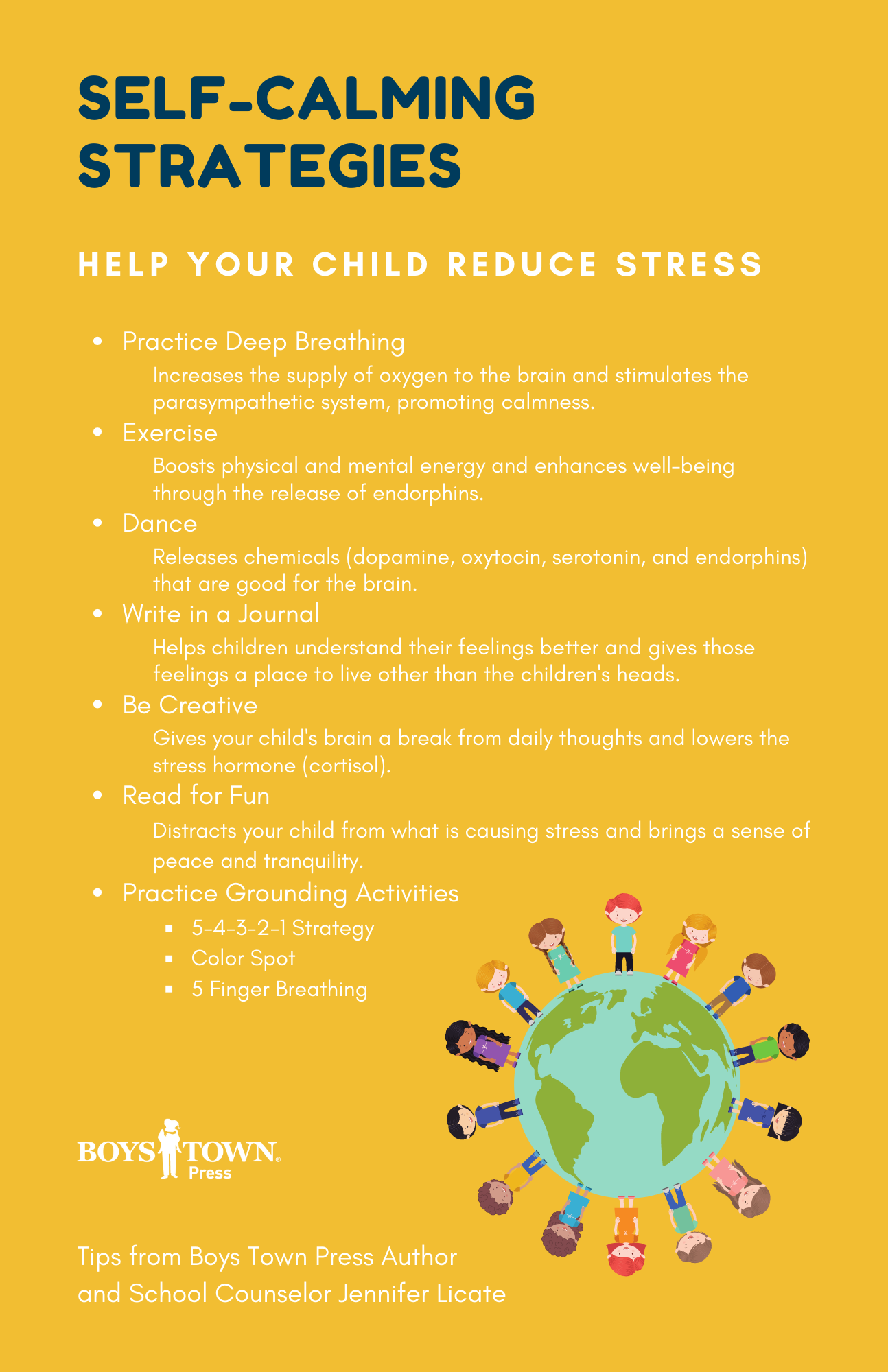Helping Children Deal with Anxiety
If you have noticed an increased level of anxiety in your child, you are not alone. The past two years have been unlike anything we’ve experienced before. There were so many unknowns as we entered the pandemic, which created fear and anxiety. Even now, we continue to learn more about this disease and the vaccines, so this period of uncertainty is not over.
The abrupt change to our routines increased the level of fear in children and their families. Children were asked to stay home and learn virtually. They stopped participating in their activities and had little to no interactions with friends, classmates and even extended family. The constant changes to school routines created even more stress in children. Each time our children became comfortable with a new school routine, it was changed. So many children thrive in a structured environment where they know what to expect every day, but it was almost impossible for parents or educators to provide this. Although everyone knew these changes were aimed at keeping us safe and eventually returning us to more of a regular routine, it still had an effect.
In addition, the social isolation we experienced during the pandemic adds to the increased level of anxiety among children. Children are no longer used to interacting with peers on a daily basis and many need some time to adjust. Adding even more awkwardness to social interactions is the rules that now govern how children are permitted to socialize with their peers. Even interactions that used to feel easy are harder.

So… how can you help your child manage their increased level of anxiety?
Allow your child the space to talk about any fears or worries. It helps so many children to talk about what’s bothering them, but it can be hard for children to bring up these conversations. You can encourage your child to open up by sharing some child-appropriate fears of yours and what you do to help yourself feel better when you’re feeling anxious or worried. Another way to encourage conversation is to read a book about worry to your child. After reading the book, you can start the conversation by asking your child if they’ve ever felt like the worried character in the story.
Keep your home routine as consistent as possible. Children feel less anxious when they know what to expect. Even though summer offers more flexibility in your schedule, it’s important to keep some consistency. A great way to achieve this consistency is by keeping the same bedtime routine you have during the school year. Whether it’s reading stories or just cuddling and talking about your day before bedtime, the consistency will provide comfort for your child.
When your child feels physically well, they will be more prepared to handle any worries. Enough sleep will allow your child to feel calm, feel good about himself and able to make good choices (9-12 hours per night are recommended for children ages 6-12 while 8-10 hours per night are recommended for children ages 13-18). If your child is sleep-deprived, they may feel sad, hopeless or anxious. Also encourage your child to eat healthy food and drink plenty of water.
Time with friends and family will reduce stress. When your child has positive relationships, she will seek out healthy ways to deal with stress, such as confiding in friends and family. Allow her this important time with friends and family. However, if your child is experiencing social anxiety, she may need some encouragement. Talk with your child about friends and/or family who are supportive and plan activities to connect with these friends/family.
Teach your child about the value of a daily mantra. Your child can repeat this mantra to himself daily and use as encouragement when he’s entering stressful situations. Give your child some examples of uplifting mantras but ultimately let him choose the mantra. Some examples you can suggest are, “I can do hard things. I’m strong and capable.” or “I’m going to try my best and have fun with it.” or “I love myself and I’m going to be kind to myself. It’s okay if I make mistakes.”
Introduce your child to self-calming strategies to reduce stress. Show your child a few strategies and allow them to choose a strategy they’d like to try. It’s important for your child to practice this self-calming strategy every day for at least 5 minutes two times per day. This will help keep her stress level low and your child will know how to use the strategy. During times of stress the strategy will be more effective because your child already knows how to implement it and their body has become accustomed to responding well through this practice.
If you have talked with your child and implemented some of these strategies but haven’t seen an improvement in their level of anxiety, it is best to reach out for additional support from a mental health therapist.
New on the Blog
Self-Care Strategies That Stick: A Blueprint for School Counselors (Part 3)
Part 3: How to build and sustain your personal self-care system Develop a self-care system that work...
Self-Care Strategies That Stick: A Blueprint for School Counselors (Part 2)
Part 2: Eight categories that comprise true self-care In recent years, self-care has become a popula...
Self-Care Strategies That Stick: A Blueprint for School Counselors (Part 1)
Welcome to this three-part blog series on self-care. In Part 1, we’ll explore why self-care is...
The Library: One of Education’s Most Valuable (and Overlooked) Allies
Nothing gets a college student’s attention like the word “free!” As some...
Six Steps to Safeguarding your Child’s Mental Health
Is there a Brad in your family? Brad is a typical middle school kid who just wants to fit in. He doe...
Peer Mediation Programs: Good for Students, Good for Schools
There’s something magical about giving power to students to resolve peer conflicts. No longer...







